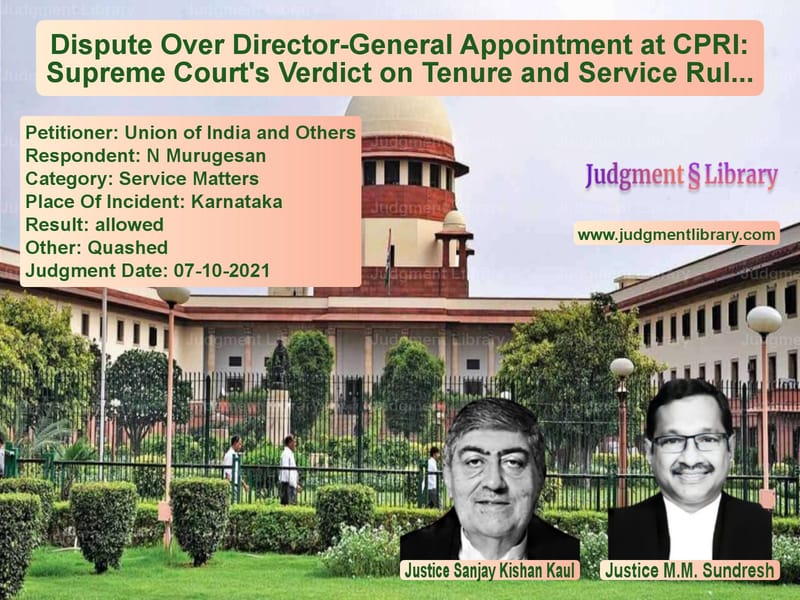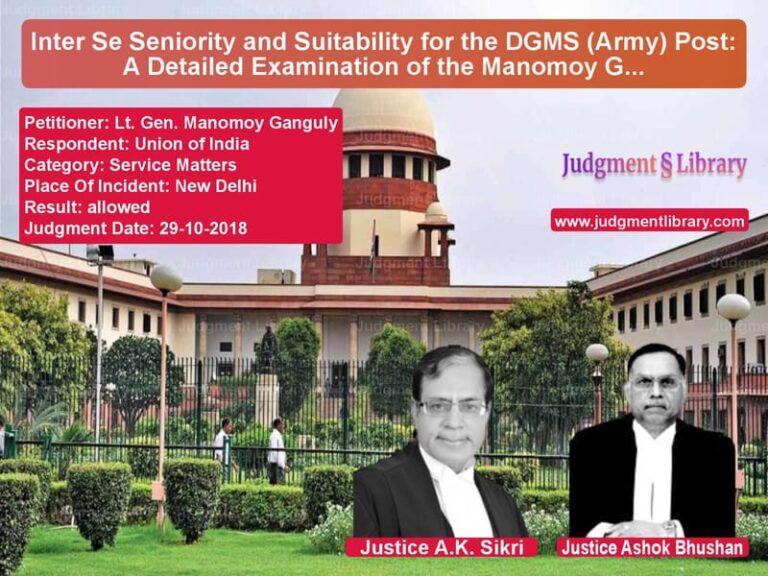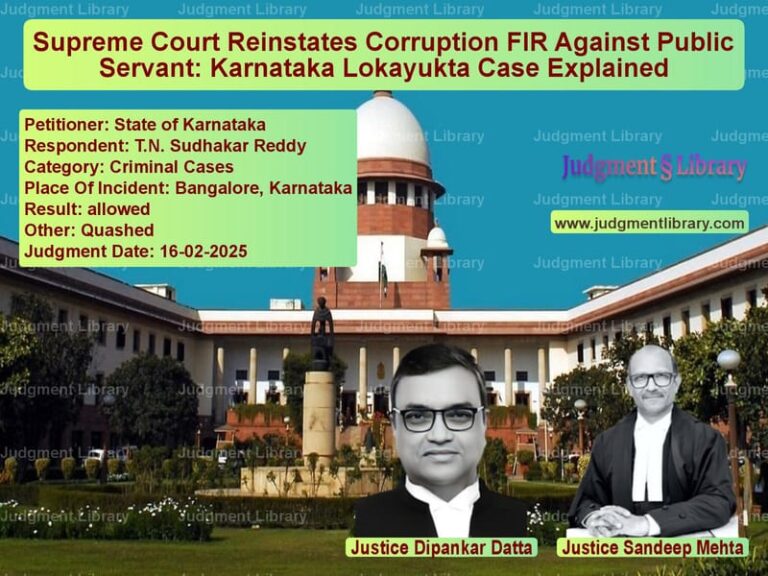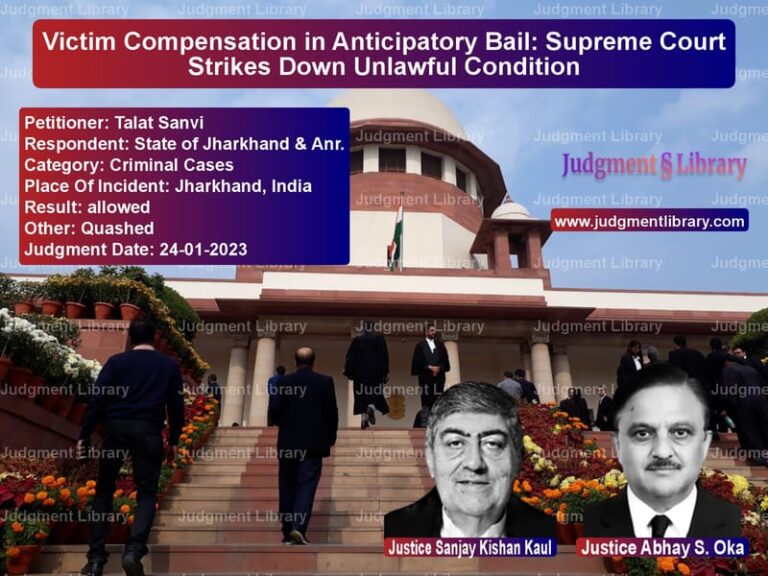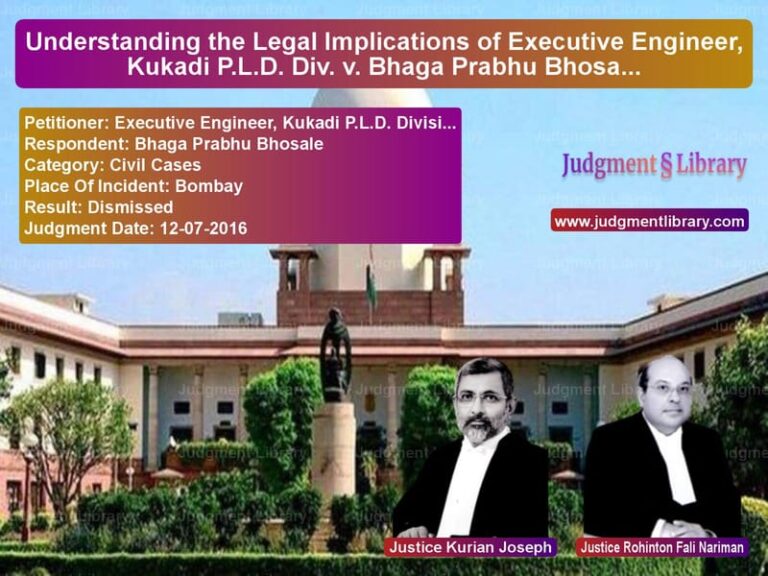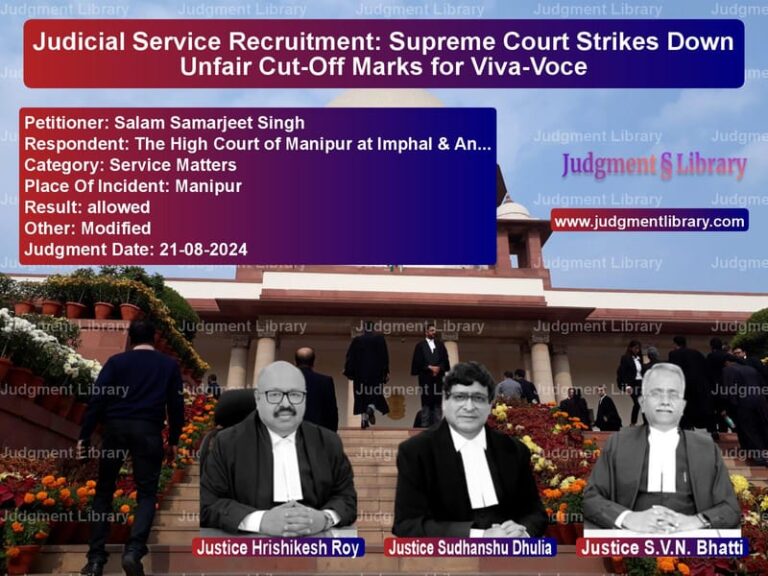Dispute Over Director-General Appointment at CPRI: Supreme Court’s Verdict on Tenure and Service Rules
The Supreme Court of India recently delivered a judgment in the case of Union of India and Others vs. N Murugesan, addressing a crucial issue related to tenure-based appointments in government institutions. This case revolved around the appointment of the Director-General of the Central Power Research Institute (CPRI), an autonomous body functioning under the Ministry of Power. The primary legal questions revolved around whether tenure-based appointments were permissible under the existing rules and whether an incumbent appointee could claim a right to continue in service until the age of superannuation.
Background of the Case
The dispute originated when the respondent, N Murugesan, was appointed as the Director-General of CPRI through direct recruitment in 2010 for an initial tenure of five years. The appointment was made with the approval of the Appointments Committee of the Cabinet (ACC), which included the Prime Minister and Home Minister. The appointment letter explicitly stated that the respondent’s tenure would be five years or until further orders, and any extension would be subject to suitability.
As his tenure was coming to an end in 2015, Murugesan submitted representations seeking an extension, arguing that his appointment should be considered as a regular appointment and that he should continue until the age of 60, the superannuation age for regular employees. The Ministry of Power, after considering various reports, decided not to extend his tenure and instead initiated fresh recruitment.
Legal Issues Raised
- Whether a tenure-based appointment could be treated as a regular appointment, granting the incumbent the right to continue until superannuation.
- Whether the government had the discretion to deny an extension despite the satisfactory performance of the appointee.
- Whether the respondent’s delay in challenging the tenure restriction constituted acquiescence.
Arguments Presented
Petitioners’ Arguments (Union of India and Others)
Senior counsel for the appellants contended:
- The respondent was well aware that his appointment was tenure-based and had accepted the terms at the time of joining.
- The rules governing CPRI did not prohibit tenure-based appointments.
- Performance reviews were only relevant for assessing the respondent’s work and did not automatically entitle him to an extension.
- The respondent’s claim that he should continue until superannuation was an afterthought, as he raised this issue only towards the end of his tenure.
Respondent’s Arguments (N Murugesan)
Senior counsel Prashant Bhushan argued:
- The appointment was made through direct recruitment, implying a regular appointment rather than a fixed tenure.
- There were no explicit rules allowing a tenure-based appointment for the Director-General’s post.
- The Ministry’s decision not to extend his tenure was arbitrary and violated Articles 14 and 16 of the Constitution.
- His performance had been rated “outstanding,” and the government had no valid reason to replace him.
Supreme Court’s Analysis
Tenure vs. Regular Appointment
The Court observed that the rules governing CPRI permitted appointments to the Director-General’s post either through direct recruitment or deputation. However, there was no explicit prohibition on tenure-based appointments. The Court held:
“In a direct recruitment, the appointment on a regular or tenure basis is at the discretion of the employer, especially when the rules do not prohibit such appointments.”
It further emphasized that the terms of employment were clearly communicated to the respondent at the time of appointment, and he had accepted them without any objections.
Delay, Laches, and Acquiescence
The Court noted that the respondent had remained silent on the issue of regular appointment for nearly five years and raised his claim for continuation only when his tenure was about to expire. The judgment stated:
“On the principle governing delay, laches, and acquiescence, followed by approbation and reprobation, respondent No. 1 ought not to have been granted any relief by invoking Article 226 of the Constitution.”
Discretion of the Government
The Court reaffirmed that suitability for extension was at the government’s discretion and that the decision not to extend Murugesan’s tenure was neither arbitrary nor illegal. It observed:
“A decision has been taken at the highest level. We cannot infer that materials have not been placed before taking the decision.”
Final Judgment
The Supreme Court set aside the decision of the Karnataka High Court, which had earlier granted partial relief to Murugesan, and ruled in favor of the Union of India. The key points of the verdict were:
- The respondent’s appointment was tenure-based, and he had no right to claim continuation until superannuation.
- The government’s decision to not extend his tenure was valid and did not violate any statutory provisions.
- The respondent’s delay in challenging the tenure condition constituted acquiescence.
- The fresh recruitment process for the post was lawful.
Impact of the Judgment
This ruling has significant implications for tenure-based appointments in government and autonomous institutions. It clarifies that:
- Government bodies have the discretion to make tenure-based appointments even in cases of direct recruitment.
- Employees cannot challenge service conditions that they have knowingly accepted.
- The principle of acquiescence applies when an employee delays raising objections until the end of their tenure.
- Performance appraisals alone do not create an automatic right to extension.
The Supreme Court’s decision thus upholds the government’s autonomy in recruitment matters while ensuring that tenure-based appointments are not misinterpreted as regular employment.
Petitioner Name: Union of India and Others.Respondent Name: N Murugesan.Judgment By: Justice Sanjay Kishan Kaul, Justice M.M. Sundresh.Place Of Incident: Karnataka.Judgment Date: 07-10-2021.
Don’t miss out on the full details! Download the complete judgment in PDF format below and gain valuable insights instantly!
Download Judgment: union-of-india-and-o-vs-n-murugesan-supreme-court-of-india-judgment-dated-07-10-2021.pdf
Directly Download Judgment: Directly download this Judgment
See all petitions in Employment Disputes
See all petitions in Public Sector Employees
See all petitions in Recruitment Policies
See all petitions in Termination Cases
See all petitions in Judgment by Sanjay Kishan Kaul
See all petitions in Judgment by M.M. Sundresh
See all petitions in allowed
See all petitions in Quashed
See all petitions in supreme court of India judgments October 2021
See all petitions in 2021 judgments
See all posts in Service Matters Category
See all allowed petitions in Service Matters Category
See all Dismissed petitions in Service Matters Category
See all partially allowed petitions in Service Matters Category

